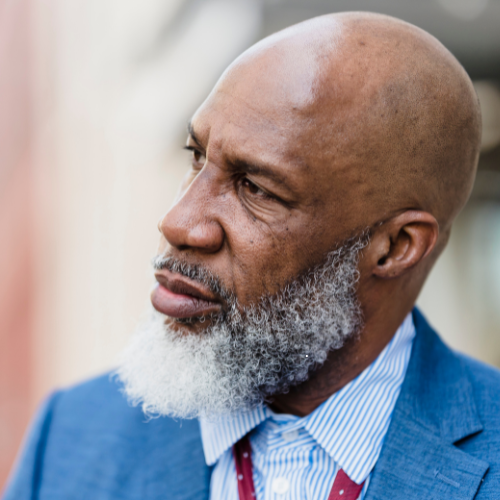
Individual Therapy for Relationship Challenges | Telehealth NJ
Navigating Relationship Challenges on Your Own:
Empowering Yourself with Individual Therapy

Are you feeling alone in your relationship, coping with constant criticism, or enduring angry outbursts—and wondering if things will ever change? If you’re seeking support for yourself, especially when your partner isn’t able or willing to join you, please know this: choosing help for yourself is an act of courage and hope. You don’t have to wait for two people to be on the same page to start healing. Individual therapy is here for anyone—regardless of relationship structure, culture, sexual orientation, or background—who wants compassionate guidance and understanding.
So many people across all walks of life face these difficult relationship patterns. Perhaps you’ve been walking on eggshells, questioning your worth, or minimizing your needs to avoid further conflict. No matter your personal history, gender identity, age, or the type of relationship you’re in, your feelings are real and deserving of respect. Everyone deserves support, and therapy for you alone can be a powerful place to process these emotions, set safer boundaries, and rediscover your own value.
This post will explore the relationship challenges individuals often encounter, the emotional impact these experiences carry, and actionable steps you can take through inclusive, affirming individual telehealth therapy available across New Jersey.
When You’re Going Through It Alone
It can feel deeply discouraging and isolating when a partner isn’t ready or willing to participate in counseling. Yet your desire for a healthier, more affirming experience still matters. People of every background and relationship type sometimes find themselves feeling:
- Emotionally isolated, unsupported, or not valued
- Judged or criticized—sometimes in ways that connect to aspects of identity
- Facing anger or behaviors that create fear or insecurity
- Blamed for problems or made to feel “not enough”
- Ignored or dismissed when expressing needs and boundaries
- Wanting growth, even if their partner or loved one isn’t open to therapy
If any of this sounds familiar, individual therapy is a safe, confidential space where you are respected, affirmed, and heard—no partner, label, or expectation required.
How Individual Therapy Helps You
You don’t need anyone’s permission to start caring for your well-being. Therapy centered around you offers:
- A welcoming environment for every identity: All cultures, family structures, gender identities, sexual orientations, and backgrounds are honored.
- Support focused on your unique story: Your therapist works alongside you to understand your lived experience and journey.
- Empowerment for boundaries and self-care: Practice ways to protect your emotional space while honoring your values.
- Tools to cope with relationship challenges: Inclusive strategies help you manage criticism, anger, isolation, or feeling misunderstood in ways that respect your identity.
- Affirmation and validation: Every feeling and reflection is welcome, free from judgment and assumptions.
Why Telehealth in New Jersey Is a Game Changer
Accessible therapy makes healing possible for everyone, regardless of where you live or what your circumstances may be. Telehealth helps create care that is:
- Private and affirming: Join sessions from a place that feels safest to you, whether that’s your home, office, or another space where you belong.
- Flexible for diverse lives: Sessions can fit any schedule—no city-center commute required, and accessible to people with disabilities or mobility concerns.
- Open to all: No matter your race, religion, family structure, partnered status, or who you love, therapy is available for you.
Frequently Asked Questions
Can individual therapy really help with relationship issues?
Absolutely. Even if your partner isn’t involved, working on yourself can shift relationship dynamics, improve your well-being, and help you make constructive choices.
What if I feel guilty attending therapy alone?
Many people hesitate out of guilt or fear. Remember: prioritizing your emotional health is not selfish—it’s an act of self-respect.
What kinds of issues can I discuss?
Anything on your mind is welcome. Topics often include managing criticism, coping with anger, feeling alone, building self-esteem, and deciding your next steps.
Is telehealth therapy confidential?
Yes. Sessions are private and held on secure, HIPAA-compliant platforms to ensure your confidentiality and comfort.
How do I start individual therapy in New Jersey?
Simply reach out to schedule a free consultation. We’ll answer your questions and match you with a therapist who understands your journey.
Taking the First Step for Yourself
If you’re longing for support and your partner isn’t ready—or willing—to join, please know that your healing doesn’t need to wait. Therapy is for everyone, and you deserve to feel respected and understood.
Every background, identity, and relationship story is welcome—and supported—here. The pain you’re carrying matters, and so does your hope for a more fulfilling future.
If you’re ready to take that step for yourself, let’s connect. Together, we’ll honor your experience and empower you with tools and understanding, so you can reclaim your well-being—one step at a time.







